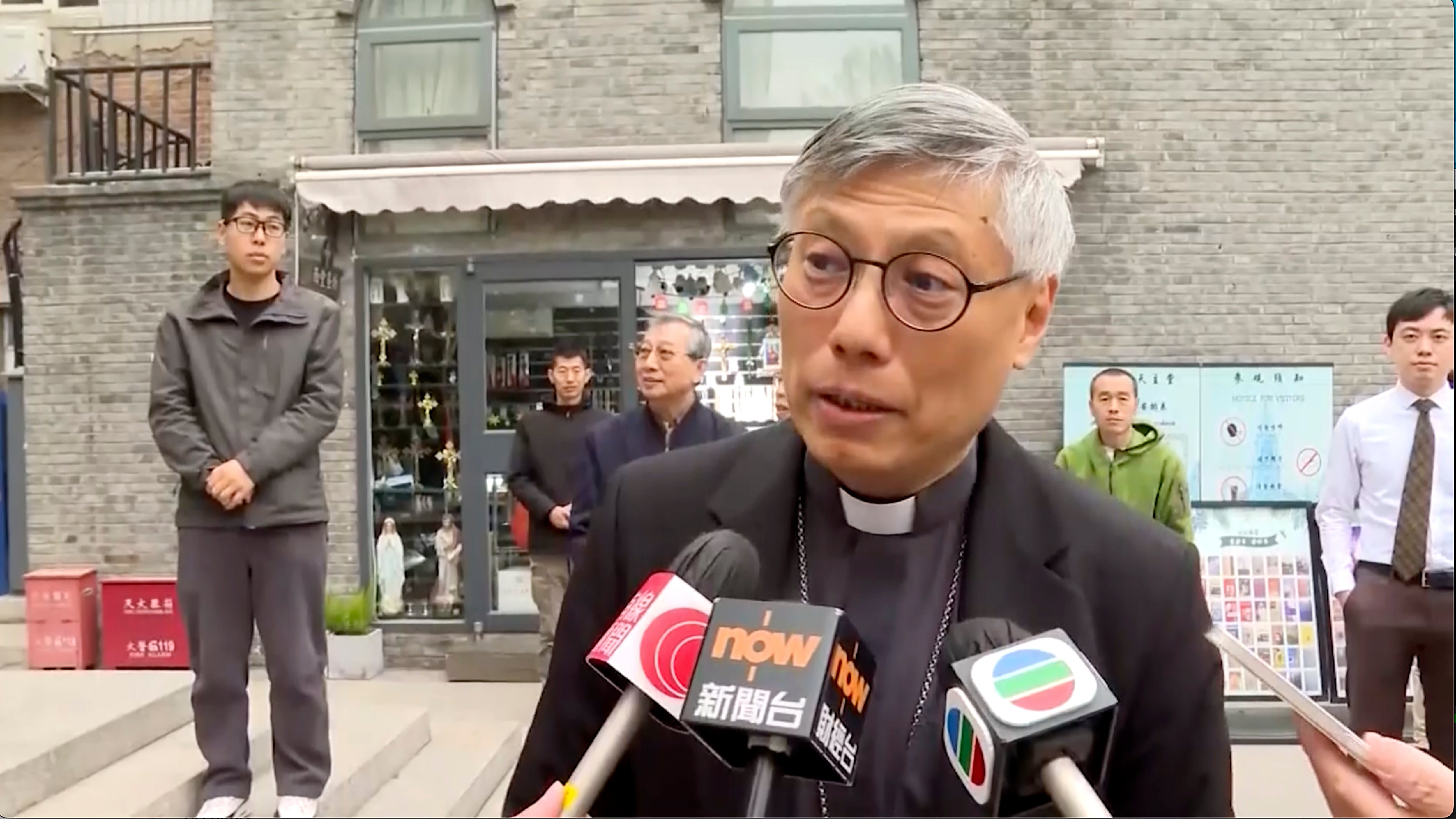Hong Kong bishop invites head of China's state-backed church
Hong Kong’s Roman Catholic bishop has invited a leader of the Communist Party-controlled group for Catholics in mainland China to visit his city

Your support helps us to tell the story
From reproductive rights to climate change to Big Tech, The Independent is on the ground when the story is developing. Whether it's investigating the financials of Elon Musk's pro-Trump PAC or producing our latest documentary, 'The A Word', which shines a light on the American women fighting for reproductive rights, we know how important it is to parse out the facts from the messaging.
At such a critical moment in US history, we need reporters on the ground. Your donation allows us to keep sending journalists to speak to both sides of the story.
The Independent is trusted by Americans across the entire political spectrum. And unlike many other quality news outlets, we choose not to lock Americans out of our reporting and analysis with paywalls. We believe quality journalism should be available to everyone, paid for by those who can afford it.
Your support makes all the difference.Hong Kong’s Roman Catholic bishop on Friday said he had invited a leader of the Communist Party-controlled group for Catholics in mainland China to visit his city, in a high-profile gesture aimed at improving strained Vatican relations with Beijing.
Bishop Stephen Chow said Joseph Li, who also is archbishop of Beijing in China’s state-recognized church hierarchy, appeared to be “quite positive” about the invitation, according to public broadcaster RTHK. The report gave no indication when Li might visit.
Chow announced the invitation on the last day of a five-day trip to Beijing, the first by a bishop of Hong Kong in nearly three decades. Last month, the bishop said that his visit underscores the mission of the Hong Kong Diocese to be a bridge church and promote exchanges between the two sides.
But the trip came as the Vatican and Beijing are again split over the power to appoint bishops.
China and the Vatican severed diplomatic ties in 1951, following the Communists’ rise to power and the expulsion of foreign priests. Since the break in ties, Catholics in China have been divided between those who belong to an official, state-sanctioned church and an underground church loyal to the pontiff. The Vatican recognizes members of both as Catholics, but claims the exclusive right to choose bishops.
In 2018, the two sides announced that they had reached a private accord, which regularized the status of several Chinese-appointed bishops and paved the way for future nominations.
An agreement on Catholic bishops has been renewed twice, most recently in October for two more years. But in November, a feud broke out over the installation of an auxiliary bishop in Jiangxi province, which the Vatican does not recognize as a diocese; two weeks ago Vatican News, the news portal of the Holy See, reported that China had unilaterally appointed a new bishop to Shanghai.
The agreement has been harshly criticized by many, including by Hong Kong’s Cardinal Joseph Zen, who was detained in May on suspicion of colluding with foreign forces under a Beijing-imposed national security law that jailed or silenced many activists. He was released on bail and has yet to be formally charged, but he and five others were fined in a separate case in November for failing to register a now-defunct fund set up to help arrested protesters.
When Chow led a prayer on Friday, he said people should “love the country and love the church,” public broadcaster RTHK reported. He later told reporters that everyone should learn how to do these two things at the same time.
“If you live in Hong Kong and China, then they should love their country,” he said.
Estimates of the total number of Chinese Catholics run between 6 million and 12 million, worshiping in both the recognized Patriotic Catholic Association and the underground church.
Chow is slated to conclude his trip on Friday. He visited churches and the tomb of Matteo Ricci, one of the first Jesuits to live in China, who died in Beijing in 1610.